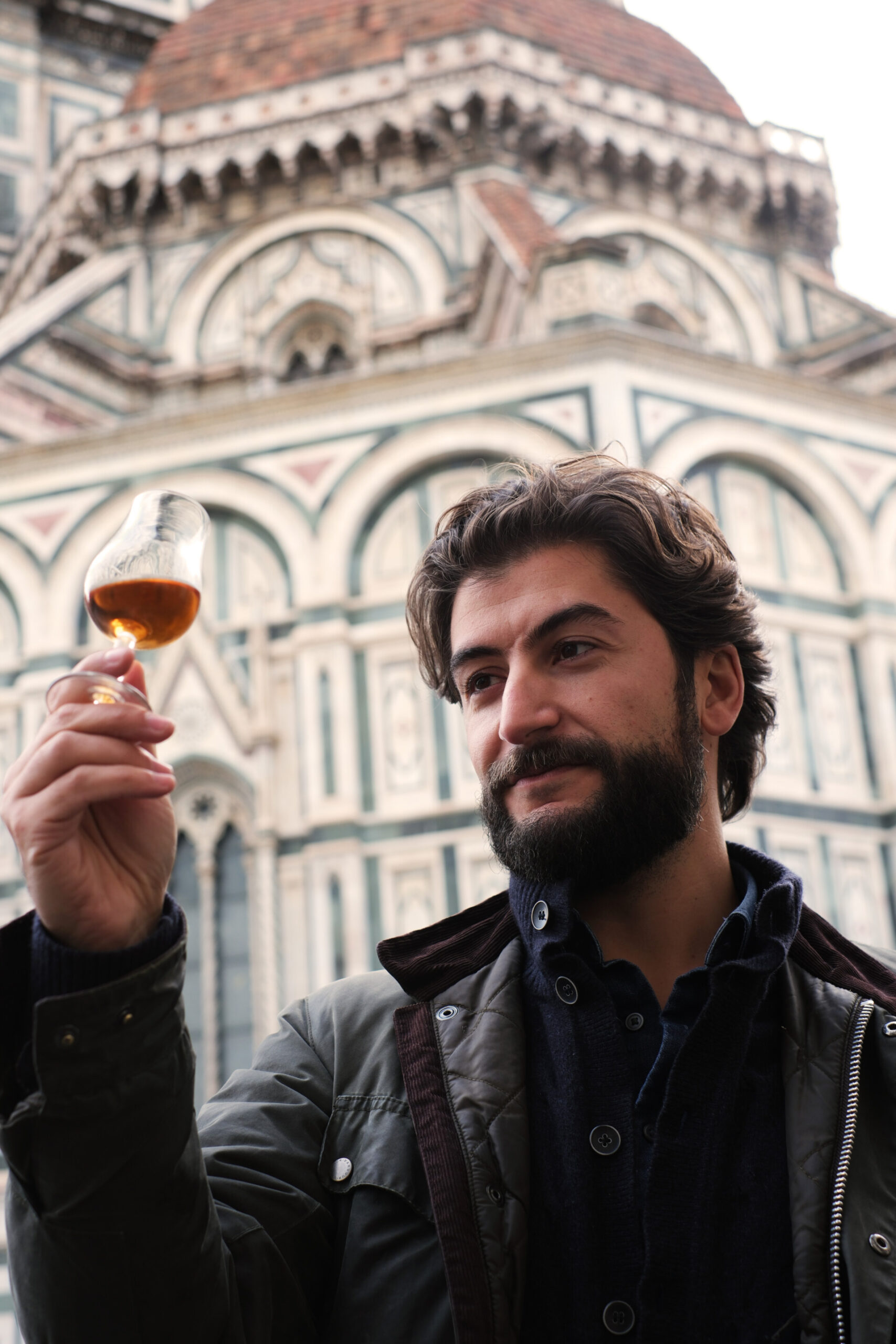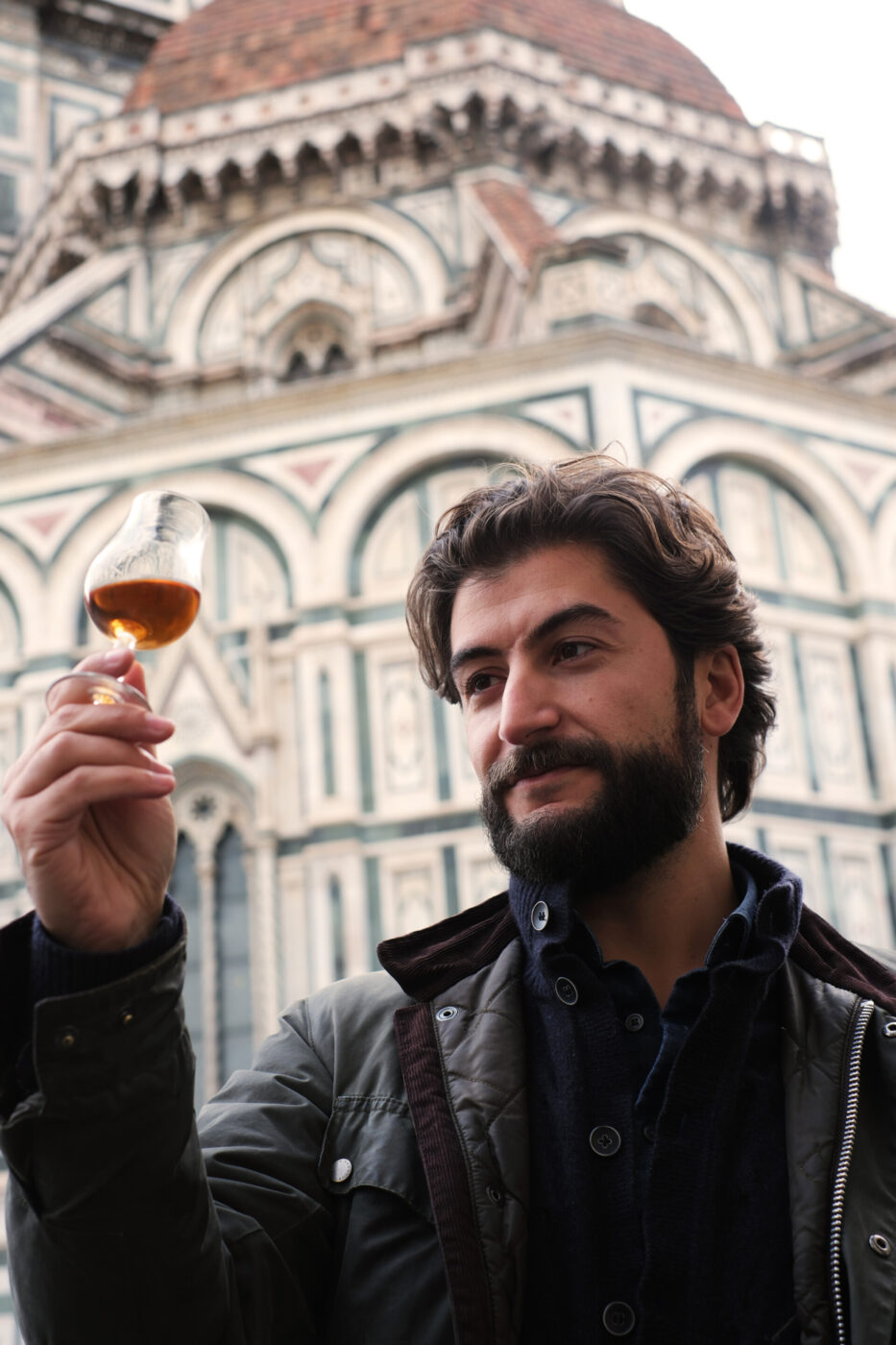Tell us a bit more about your background and your current work:
I grew up in the wine world, since both my father and my brother are oenologists and my family has been wine producers in the Chianti Classico region since 2010. But distillation was love at first sight. After graduating in law with honors at the Catholic University of Milan, I left for New York City with my girlfriend (now my wife) for an experience abroad before starting the preparation for the Bar Exam. At that time, I was just curious about the craft distilling movement, which was growing in the United States. While in NYC, I applied for an internship with the coolest bourbon distillery in Brooklyn: Kings County Distillery. It was the first time in my life I was face to face with a still, an extraordinary experience made in contact with extraordinary people, to whom I will always be grateful.
Back in Italy, I came up with the idea of combining the traditional elements of a Tuscan winery with the innovation of a craft distillery. So, while preparing for the Bar Exam, I went to the Oenological School of Conegliano to become a certified Master Distiller. Immediately afterwards, I crossed the Alps to go study oenology at the University of Bordeaux for one year. Shortly thereafter, I formally became a lawyer in Florence, but my stay did not last long because I left again for the French region of Cognac for another experience in three distilleries. It marked me irreversibly and pushed me to hang up my lawyer’s suit to devote myself completely to the Winestillery project. We launched the distillery in 2018, and today I’m the founder and Master Distiller of Winestillery, the first craft distillery in the Chianti Classico Region, and Florentis, the first whisky distillery in the city of Florence.
Winestillery spirits are wine based, 100% natural, and without added chemicals. This means that the color, flavor, and aromas of our products come exclusively from botanicals and herbs. The consequence is a very intense, deep, and wide taste profile.
Why did you choose to stay in Italy?
I chose to stay in Italy because it’s the country where my roots are. It’s a country with an unparalleled cultural heritage for craftsmanship, agriculture, and attention to raw materials. All these are vital elements of our project; without Italy and Tuscany, Winestillery and Florentis could not exist.
What do you see for the future of the spirits industry in Italy?
I see a period of great excitement and interest. After a first wave of curiosity, in which the market was flooded by an innumerable series of labels produced on behalf of third parties, I think that the consumer has now become very attentive. They know how to recognize who is authentically the producer and who instead simply puts his name on the bottle. I believe that those who dedicate their work to the production of natural distillates without excipients, colorants, and additives will find space within the desires of the consumer as never before possible. All this makes us believe in a bright future for this new era of Italian distillation.
What are the greatest obstacles and satisfactions that you face working in this country?
The major complications are linked to the regulatory and bureaucratic system within the world of distillation. As a lawyer, I believe that it would be appropriate to provide for a profound reform of the legislation that brings Italy up to date with modern times and allows producers to compete on the market on equal terms with other countries. Some laws date back to the times of monarchy and should be revised today. For example, Italy is still one of the few countries in which the aging warehouses are kept under lock and key by customs for fiscal security reasons, with the consequence that the distiller cannot access their barrels without having an officer on site. In the United States, the aging warehouses are free from seals and this allows the evolution of the distillate inside the barrels to be constantly evaluated by the producers.
My greatest satisfaction is contributing to new interpretations of our territory, following paths that have not been followed before and which can enrich the terroir of Tuscany with new shades and facets.

